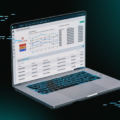| Category | Details |
|---|---|
| Threat Actors | Nation-state Actors, Cybercriminals, and Insiders exploiting CVE-2024-9264. |
| Campaign Overview | CVE-2024-9264 enables low-privilege users to execute arbitrary SQL commands, leading to potential code execution, file access, and system compromise. Threat actors actively share exploits in underground forums. |
| Target Regions | Global, with emphasis on the U.S., Brazil, China, and France. |
| Methodology | Exploiting improper sanitization in Grafana’s SQL Expressions feature to inject SQL commands, execute arbitrary code, or access sensitive files without user interaction. |
| Product Targeted | Grafana (versions earlier than 11.0.5, 11.1.6, and 11.2.1). |
| Malware Reference | No specific malware; exploitation through SQL injection in Grafana’s SQL Expressions feature, particularly via the read_csv_auto() function. |
| Tools Used | – Proof-of-concept exploit tools. – SQL injection techniques. – Grafana’s SQL Expressions feature integrated with DuckDB CLI. |
| Vulnerabilities Exploited | CVE-2024-9264 (CVSS 9.4, critical), leading to arbitrary code execution and unauthorized file access. |
| TTPs | – Initial Access (T1190): Exploiting SQL injection. – Privilege Escalation (T1068): Arbitrary code execution. – Collection (T1005): Access to sensitive system files like /etc/passwd. |
| Attribution | No specific actor confirmed, but linked to nation-state and cybercriminal activities. |
| Recommendations | – Update to Grafana versions 11.0.5, 11.1.6, or 11.2.1 immediately. – Exclude/remove DuckDB executable if patching isn’t possible. – Monitor for unusual SQL queries. – Strengthen access controls and implement segmentation. |
| Source | CYFIRMA |
Read full article: CVE-2024-9264: A Critical Vulnerability in Grafana : Vulnerability Analysis and Exploitation – CYFIRMA
Disclaimer: The above summary has been generated by an AI language model.




Leave a Reply